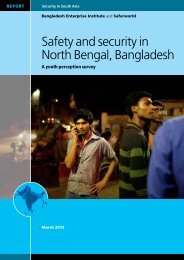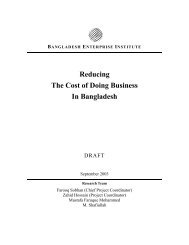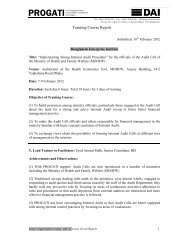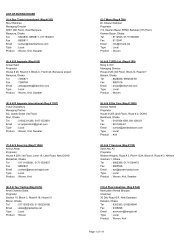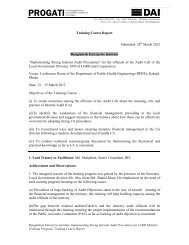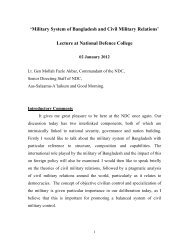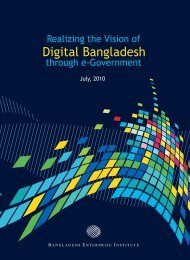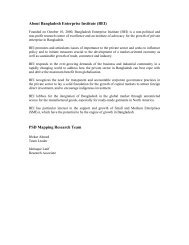Bangladesh Social Enterprise Project - Bangladesh Enterprise Institute
Bangladesh Social Enterprise Project - Bangladesh Enterprise Institute
Bangladesh Social Enterprise Project - Bangladesh Enterprise Institute
You also want an ePaper? Increase the reach of your titles
YUMPU automatically turns print PDFs into web optimized ePapers that Google loves.
“Telecommunication as a New Weapon Against<br />
Poverty”<br />
Based on the pioneering work of the Grameen Village Phone in <strong>Bangladesh</strong>, Village Phone and<br />
Village Phone Direct extends the benefits of affordable telecommunications access in a sustainable,<br />
profitable and empowering way. The Village Phone Program is a unique initiative to provide<br />
Universal Access to telecommunications service to remote, rural areas. Village Phones have proven<br />
immense potential in boosting income of poor households in rural areas, promoting health care,<br />
development of agri-business and in the social empowerment of poor women. This relatively<br />
inexpensive technology can solve many of the problems the poor in rural villages have faced for<br />
decades. Grameen Foundation serves as a catalyst and creates the linkage between the<br />
telecommunications sector and the microfinance sector to enable microfinance clients to borrow the<br />
money needed to purchase a “Village Phone business” – literally, a business in a box.<br />
The grassroots entrepreneurs, or Village Phone Operators (VPOs), operate<br />
their businesses in rural villages where no telecommunications services<br />
previously existed; they rent the use of the phone to their community on a<br />
per-call basis. The VPOs provide affordable rates to their patrons while<br />
earning enough to repay their loans and earn profits that allow them to<br />
make investments in their children’s health, nutrition and education, and in<br />
other business ventures. The mission was to provide easy access to<br />
telephones when needed all over rural <strong>Bangladesh</strong> and to exploit the<br />
potential of the Information Revolution to the doorsteps of villagers.<br />
The program started in March 26, 1997 and set a target of installing 40000 village phones by<br />
December 2004. By October 2002, the number of Village Phones had grown to 20000 operating in<br />
18,581 villages. Each of these phones allow access to 1500 on average. Now there are nearly 270,000<br />
Village Phone operators in 50,000 villages.<br />
There is a growing evidence of the positive role of VPs in terms of<br />
women’s empowerment. The village phone has had direct and<br />
indirect impacts in the incomes of village residents. For villages<br />
moving from having no phone to one phone, the marginal benefits<br />
to health and safety can be significant, ranging from the ability to<br />
signal distress or reach public safety officials during natural<br />
disasters to access to emergency medical advice. Grameen Village Phone is enhancing economic<br />
development by helping individuals and businesses gain efficiency through communication and<br />
promoting social and economic development creating a 'substantial consumer surplus' for the users.<br />
On the other hand, it has created an income-earning opportunity for the VP operators, mostly poor<br />
women and borrower members of Grameen Bank, who are now able to make their opinions count.<br />
Source: www.grameenphone.com<br />
Data Source: Secondary Literature<br />
Information Compiled by <strong>Bangladesh</strong> <strong>Enterprise</strong> <strong>Institute</strong> (BEI). For further information, please contact Mr. Md. Rashedur<br />
Rahman, Research Associate, BEI; Tel: +88 02 9892662-3 Ext: 120; Cell: +88 01712 193400; Email: rashed@bei-bd.org;<br />
Weblink: www.bei-bd.org




